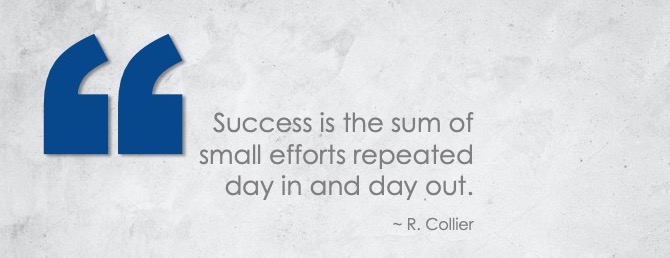Do you ever struggle with changing habits or implementing new practices?
You may have the best intentions but somehow, in some way, obstacles keep getting in your way and derail you from reaching your goals.
Mostly those obstacles are the brain’s natural response to change. As a result, change can often be met with emotions ranging anywhere from mild discomfort to full-on anxiety.
But … what if change didn’t have to be so challenging?
What if there was a simple method that could help bypass this biological response?
Consider the Kaizen approach for making change.
Kaizen – which roughly translates to continuous slow improvement – asks for nothing more than small, doable steps towards change and/or improvement.
Robert Maurer, the author of The Spirit of Kaizen, believes that “little steps are often preferable to disruptive changes because they are not only easier but also more effective.”
You see, we are naturally built to resist change. We really like our routines. So when we attempt massive change to our routine, our brains will throw up red flags and our willpower and motivation is challenged.
This ongoing battle is exhausting.
On the flip side, minute, almost imperceptible steps slip past our brain unnoticed. And when these small steps are repeated consistently over time, the change is made without disturbing the brain’s built-in alert systems.
You know what this means for you?
There’s nothing wrong with you!
You’re not lazy.
You’re not unmotivated.
Change isn’t easy for some people, so quit beating yourself up.
Kaizen’s foundation lies in these 4 principles:
- Ask small questions
- Think small thoughts
- Take small actions
- Solve small problems
Many people struggle with weight loss and fitness. Here’s an example of how the Kaizen approach might work …
Rather than beginning a plan to lose 25 pounds and committing to an aggressive exercise routine in order to achieve that goal, Kaizen would begin with incremental change. For example, if you currently don’t do any type of exercise you might begin with something as small as walking in place for 60 seconds every day.
That’s doable, right?
Then slightly increase the amount of time every week.
The key to success is the repetition of the action.
Exercising one minute a day – every day – builds a habit. Increase the amount of time every week and before you know it … you have a habit!
Okay, so how does this apply to productivity? Great question.
The answer lies in choosing one small thing/behavior/action you want to change and applying the 4 principles to it.
What one tiny action can you do that will move you towards your goal?
Start small and build gradually.
Beginning your journey into being more productive with big lofty goals that require sweeping changes rarely leads to success.
Commit to changing one small thing – one behavior. Once you master it, make another small change – master it, then another.
In a short amount of time, your new habits will have changed your trajectory significantly in the direction you want to go.
Make small changes. Get extraordinary results.
Now, get on with your day!

